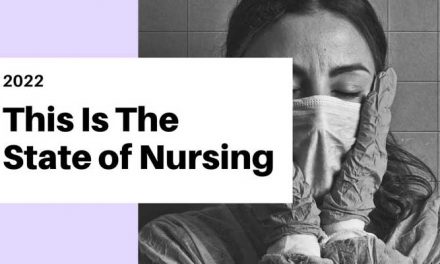The growth in health informatics is fueled by increased societal awareness of the value of health data and its ability to enhance the quality of care. The profession is rapidly increasing in importance, and the need for nurses with health informatics skills is increasing. Health informatics nurses have good job outlooks and a high average salary. Let’s take a closer look at this growing specialty.
Experience-Complexity gap in nursing
The nurse shortage is a pressing concern. As baby boomers reach retirement age, the number of new nurses entering the workforce continues to rise. These new nurses face an ageing and increasingly complex patient population. Untamed, this experience-complexity gap could have serious consequences on patient care. Short-term solutions can be costly and affect patient care. To overcome the experience-complexity gap, nursing education must evolve.
Although many nurses first got involved in informatics through on-the-job training or continuing education, formal educational attainment is necessary for an expert in this field. For example, a post-MSDNP degree can lead to higher-level executive roles in health information systems. Chief informatics officers and directors of health information technology divisions are two examples of positions available to post-MSDNP graduates. Currently, there are five main specialty areas in nursing informatics: clinical, consumer-health, educational, and research in nursing informatics.
Importance of health informatics to healthcare system
Health informatics focuses on integrating information technology and medical knowledge to improve care. Healthcare professionals can now use information from patient records to pinpoint health risks and inform communities. Data-driven algorithms are now a common tool for healthcare professionals to improve decision-making and reduce treatment risks. They can also analyze potential outcomes. In addition, health informatics is transforming patient care by improving communication and reducing errors.
The importance of health informatics is largely due to its ability to improve the functioning of organizations by providing organized patient data. These systems enable healthcare staff to understand patient needs better and optimize patient care. They also improve patient safety and quality. Knowing the health of every patient allows healthcare organizations to deliver quality care while reducing errors and improving patient health outcomes. By leveraging health informatics, physicians and health care professionals can share patient records and patient data more efficiently.
Demand for nurses with health informatics skills
Before CPOE, nurses transcribed provider orders by hand, which led to transcription errors and human error. Today, software allows providers to select the correct medication and dosage and frequency, while preventing duplicate or incorrect orders. Nurse informatics enjoy problem-solving and a broad understanding of health care technology. In 2022, demand for nurses with health informatics skills is expected to rise.
The field is complex and requires a combination of knowledge from many areas of nursing. Nurses who master this specialty are expected to have more control over patient care and improve efficiency among health care workers, reducing overall costs. Nurses who specialize in health informatics are expected to earn high salaries and enjoy a positive job outlook. In addition, nurses with health informatics skills will be in high demand as health care technology becomes more widespread.
Programs that prepare nurses for this specialty
As more people become aware of the importance of advanced nursing degrees and clinical practice credentials, nurse practitioners will see a rise in job opportunities. Nurse practitioners have the ability to diagnose patients, provide treatment, and perform advanced medical procedures. To become a nurse practitioner, you must earn a Master of Science (MSN) degree, and some advanced nursing degrees also include a DNP.
The DNP program prepares nurses for scholarly practice, beginning advanced practice, and advanced clinical leadership. Students learn about health assessment and decision-making in the classroom and in clinical settings, and they complete a faculty-mentored DNP project. In addition to clinical experience, students complete a 1,000-hour practice immersion. And as the aging population continues to grow, the need for nurses in this specialty will continue to rise.





